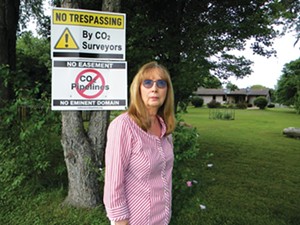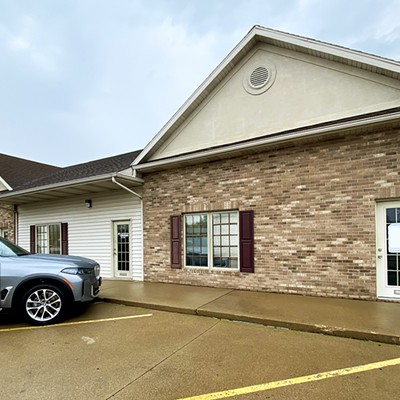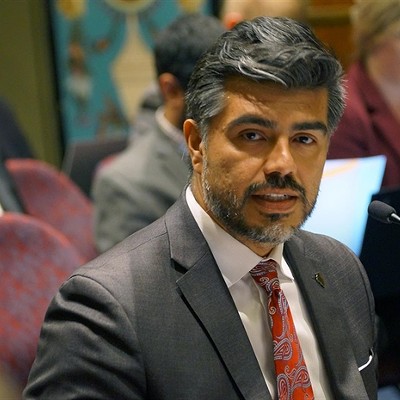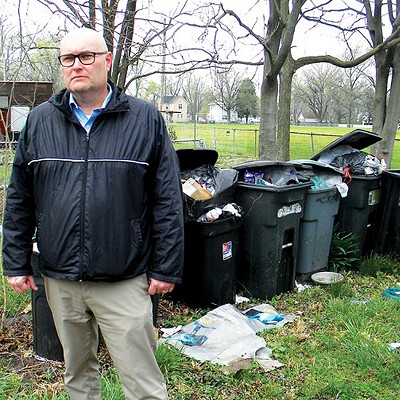Citing “the unpredictable nature of the regulatory and
government processes involved,” Navigator CO2 said Oct. 20 that the
company will cancel its $3.4 billion, multi-state carbon-dioxide pipeline
project.
The Heartland
Greenway project, which was supported by the Midwest ethanol industry and labor
unions but opposed by environmental and landowner groups, would have
transported liquified CO2 from five states, crossed Sangamon County
and stored the pressurized CO2 more than a mile underground in parts
of rural Christian and Montgomery counties. The project would have been the
largest of its type in the world.
Only 10 days
earlier, on Oct. 10, privately held Navigator asked the Illinois Commerce
Commission to withdraw its application for the construction of more than 290
miles of the pipeline through 14 counties in Illinois. Navigator asked for the option
to resubmit the application later because the company wanted to “reassess the
route and other aspects of the Heartland Greenway Pipeline System and the
application.”
The ICC hadn’t
ruled on that request at the time of the company’s Oct. 20 announcement. The
ICC had been on track to conduct a public hearing on the proposal in October
and make a final decision early in 2024, though a key ICC staff member had
recommended the project be turned down.
Kathleen Campbell, a Glenarm resident and vice president of Citizens Against the Heartland Greenway Pipeline, told Illinois Times that opponents of the project were “delighted at this outcome.”

“I didn’t see a
path forward with this level of resistance for a newly formed company that had
never done a CO2 pipeline before,” Campbell said.
Nebraska-based Navigator, in a
statement posted on its website, didn’t specifically mention public opposition
in Illinois to the project. But company officials said development of the
proposed 1,350-mile pipeline has been “challenging,” particularly in South
Dakota and Iowa.
The pipeline was
promoted as a way of reducing the amount of climate-change-causing CO2
from ethanol and fertilizer producers from being released into the atmosphere.
Opponents, however, said the pipeline
would create public safety risks and destroy valuable farmland.
They also pointed to disagreement
in the scientific community about the safety and effectiveness of underground
storage of CO2, a process known as sequestration. Opponents said
sequestration diverts attention from green-energy alternatives such as wind and
solar power.
Navigator temporarily withdrew the regulatory
application for its route through Iowa recently, and its application was turned
down by South Dakota regulators in September.
The pipeline would have transported
liquified carbon dioxide from 21 industrial sites in South Dakota, Iowa,
Nebraska, Minnesota and Illinois.
Matt Vining, chief executive
officer of Navigator CO2, said in the website statement: “As good
stewards of capital and responsible managers of people, we have made the
difficult decision to cancel the Heartland Greenway project. We are
disappointed that we will not be able to provide services to our customers and thank
them for their continued support.”
Vining added: “I am proud that
throughout this endeavor, our team maintained a collaborative, high-integrity
and safety-first approach, and we thank them for their tireless efforts. We
also thank all the individuals, trade associations, labor organizations,
landowners and elected officials who supported us and carbon capture in the
Midwest.”
Elizabeth Burns-Thompson, a Navigator
vice president, said in an email to Illinois Times: “The ultimate
decision was largely a function of a lack of certainty in a viable pathway
forward in state permitting processes across the board, not in any one state
specifically.
“To date, Navigator has spent
hundreds of millions of dollars on project development work and payments to
landowners across the proposed footprint,” Burns-Thompson said. “We do not have
plans for any new CO2 projects within the project footprint.”
Pam Richart, the Champaign-based co-founder
of the Coalition to Stop CO2 Pipelines, said in a statement that
Navigator’s decision highlights the company’s “failure to adequately address
the widespread concerns from farmers, landowners, environmental advocates and
elected officials from both sides of the aisle regarding basic protections for
communities, land and water resources.”
Campbell said CO2
pipeline opponents now will focus their attention on trying to derail the proposed
Wolf Carbon Solutions pipeline, which would bring liquified carbon dioxide from
ethanol and fertilizer plants in Iowa and Illinois to a sequestration site in
Macon County near Decatur.
Illinois counties that the Wolf pipeline
would pass through include Macon, DeWitt, Logan, Tazewell and Peoria, Stark and
Henry.
Campbell said the Wolf pipeline
request contains flaws that are “very similar” to the Navigator proposal.




















